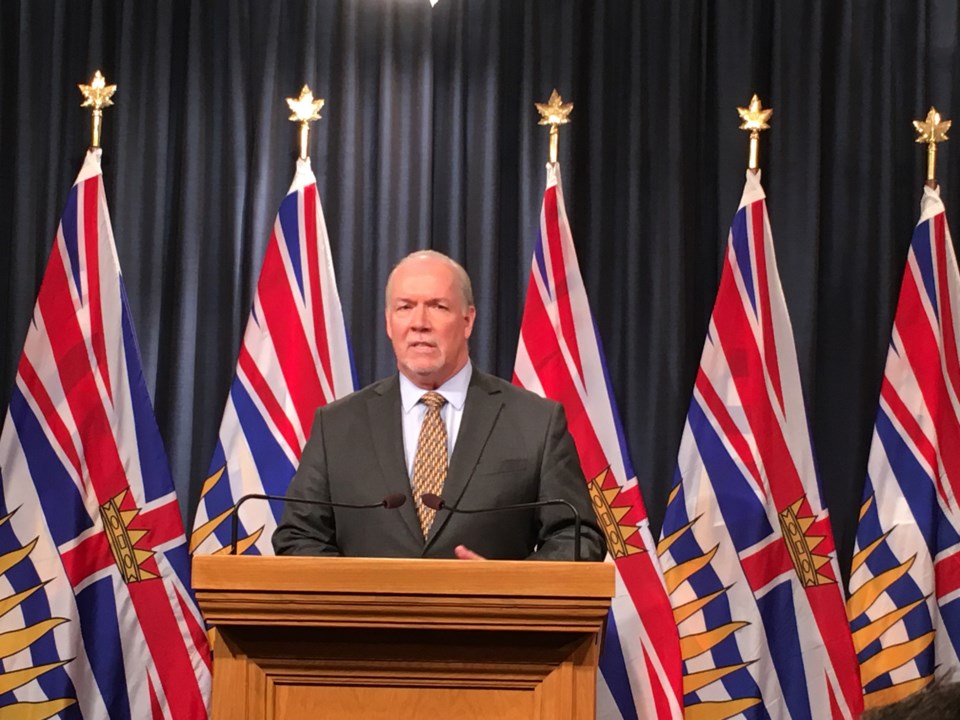This time, it was supposed to be different.
On October 1st, Premier John Horgan stood side by side with Prime Minister Trudeau and industry officials, proudly saying “today’s decision by LNG Canada to invest in northern B.C. demonstrates that balancing our economic, environmental and reconciliation priorities is possible.”
The government release added that the record investment was enabled by the B.C. Government’s new LNG framework, which specifies that any project must “respect and make partners of First Nations.”
As for LNG Canada, the release said “Project partners have reached agreements with elected First Nations at the project site and along the pipeline route.”
How things change.
Just three months later, the RCMP have been called to dismantle an illegal blockade set up to stop work on this same project – triggering protests in several cities across BC and Canada.
Eventually, others will explain how the government could so misread Wet’suwet’en internal politics – which admittedly appear Byzantine – as to endorse their endorsement, only to have it blow up some 90 days later. The Wet’suwet’en are not a monolith, but comprise some 13 houses and 5 separate clans, with both elected and hereditary chiefs, each with different levels of seniority and responsibility.
LNG Canada did sign an agreement with elected chiefs representing the Wet’suwet’en – but for lack of better terminology, there seems to be internal dispute as to whether those elected chiefs had the authority and/or jurisdiction to do so.
The confusion is comprehensive. Ministry officials confirmed they were unclear on what decision-making structure is in place – and even on the exact number of chiefs. (Vaughn Palmer indicates it might be more than 100.)
Horgan described the situation as “two solitudes,” which was apt – it’s the title of a 1945 novel about Quebec’s English and French-speaking communities neither communicating with nor understanding each other.
As it attempts to move forward on this file, the NDP has a dilemma.
It has to find a way to reconcile its activist past (and significant chunk of its support base) with the inherent compromises and difficult decisions that come in government.
For example, the NDP formally supports the United Nations Declaration on the Rights of Indigenous Peoples – UNDRIP. Written into each cabinet minister’s mandate letter, UNDRIP requires “free, prior, and informed consent.”
The problem is, nobody seems willing to define what that actually means in practice. For many activists – and many within the NDP – it’s clearly understood to mean “veto.” But as recently as today, ministry officials were clear: there is no veto.
When asked if it meant unanimity was required, Horgan said “there’s no easy answer. I know people would prefer ‘yes’ or ‘no,’ but there isn’t one.”
(Asked what investors should think of this, Horgan said sophisticated investors will know what they’re getting into.)
The NDP has a similar problem with the protests themselves. The NDP has often not only winked at protests, but explicitly endorsed and even taken part in them. Now in government, Horgan offered the following comment about this latest round of protests:
“They were not uniformly focused on Wet’suwet’en territory, there are no Orcas on Wet’suwet’en territory, for example, and there were those who were highlighting that. There were those talking about diluted bitumen, there were those talking about eradicating capitalism – there were a whole bunch of discontents on display.”
In other words, it was the usual grab bag of causes – and, for that matter, protesters who didn’t seem to fully understand (or care) what exactly they were protesting.
Had that exact same quote been given by a BC Liberal premier (or Liberal or Conservative prime minister), one can only imagine the incredulous shrieking from the NDP.
As the NDP have learned, whether or not they understand the complexities (or consequences) of these causes, B.C.’s small but vocal activist base doesn’t particularly care which party is in power.
Maclean Kay is Editor-in-Chief of The Orca



